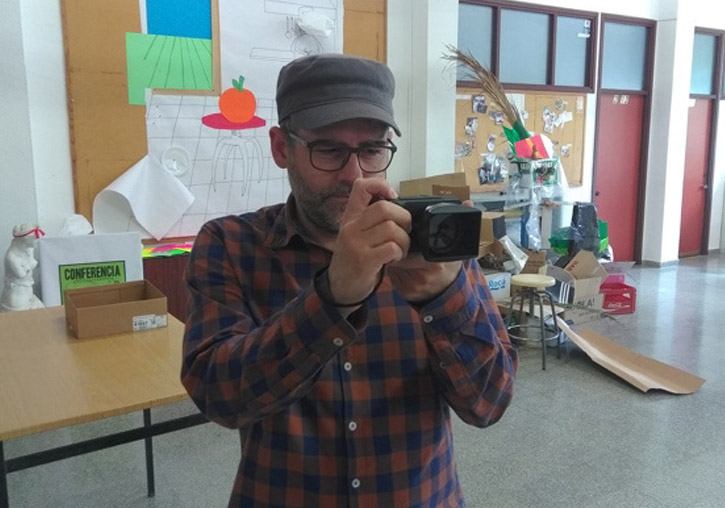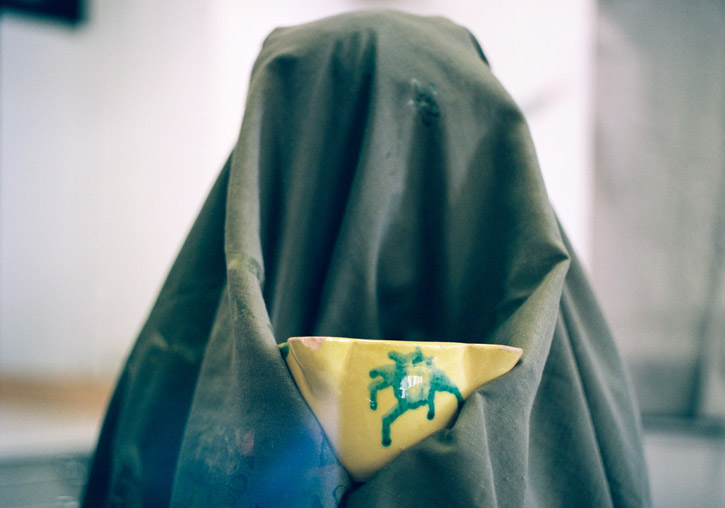
Ricard Ramon, professor at the Faculty of Teacher Training at the University of Valencia, has researched the use of artistic self-portrait and photography as tools to achieve personal reflection and on the environment of the individual represented. The conclusions confirm that the teacher training and visual and plastic arts students that have used it for self-conception and self-recognition are more aware of their own identity.
The research on Pedagogical Visual Narratives of Identity Reconstruction carried out by professor Ricard Ramon proposes the use of these models of biographical and identity analysis in educational settings. The use of artistic photography on oneself is proposed to promote self-reflection on the individual and its role in society and with others. The conclusions confirm that the participants, at the end of the study, are much more aware of their life situation, with others and with themselves. This can have many practical uses when approached and used in an educational setting.
Ricard Ramon points out that it can be applied in almost any field of knowledge and assures that, “it allows us to explore spaces and reach places that cannot be reached with other methods, which ostensibly expands our reality and our own universe”.
The group that has participated in the study is the students of the Master’s Degree in Visual and Plastic Arts Teacher Training at the University of Valencia. Through two photos, they had to capture their own image. The objective is a narrative that is formed from the portrait itself, the scenography and other elements that make up the photograph and that end up creating a biographical story. According to Ramon, “being able to visualise scenarios and narratives that transcend us enables us to establish more complex reflections on ourselves”. Taking these photographs then becomes a process of analysis, interpretation and reconstruction of reality.
The image presented by the students exists before the photo is even taken. The resulting photograph is just a physical representation of the concept that is in their minds. The process by which these students, with the participation and active help of the teacher, transform this idea or concept into photography, forces them and leads to a reflection on themselves. A reflection on what they admire or how they want to become, but also on their fears or complexes that condition or may condition their life.
Some students, for example, decided to create the strict teacher narrative (because they are students to future teachers) as a representation of what they did not want to become and, on the other hand, there were also narratives of women working in environments traditionally considered as exclusively male as a representation of what they admire. Professor Ramon assures that “the objective is not to stop being oneself, but to project possible different versions of ourselves”.
The process is more important, if possible, than the end result. The role of the teacher as a teacher-artist-researcher is key and is integrated into the creative process. S/he brings an artistic and symbolic look that tries to adjust as much as possible to the student’s proposal. Ramon believes that this work could not be carried out without this implication: “The presence of the teacher always alters the result of a pedagogical action and that is a potential that must be positively oriented to create a richer and more conscious knowledge”. In many cases the teacher becomes part or share the story with the students since they belong to the same field of education (even more evident in this case since they are future teachers).
Analogue process
Furthermore, the process is almost entirely analogue as opposed to the digital generation that the participants belong to. Cameras and analogue development are used which, according to the research, creates a surprised reaction in the participants when they see the final result. This is because, accustomed to immediacy, they find that, due to the development process, they have to spend several days from when they take the photo waiting until they can see the result. In addition, Ricard Ramon supports that the experience is completely different and that “the experience and the artistic, aesthetic and symbolic results produced by taking a photo with a mobile phone or with an analogue camera are simply different and not comparable”.
The research is based on and is inspired by various previous works and research on the subject of art and education. The base model on which the project is inspired is Image-Based Educational Research (Moss and Pini, 2016) but it is also widely related to Arts Based Research (ABR), specifically with Arts-Based Educational Research. Works and research that support that learning through art is something perfectly accessible to all fields of knowledge.
Article: Ramon, R. (2020). Narrativas visuales pedagógicas de reconstrucción identitaria. ARTSEDUCA, (28), 52-67. DOI: https://doi.org/10.6035/Artseduca.2021.28.4
Article link: http://www.e-revistes.uji.es/index.php/artseduca/article/view/4483/6302
Photo caption:
1. Narrative proposed by one of the students.
Images:











